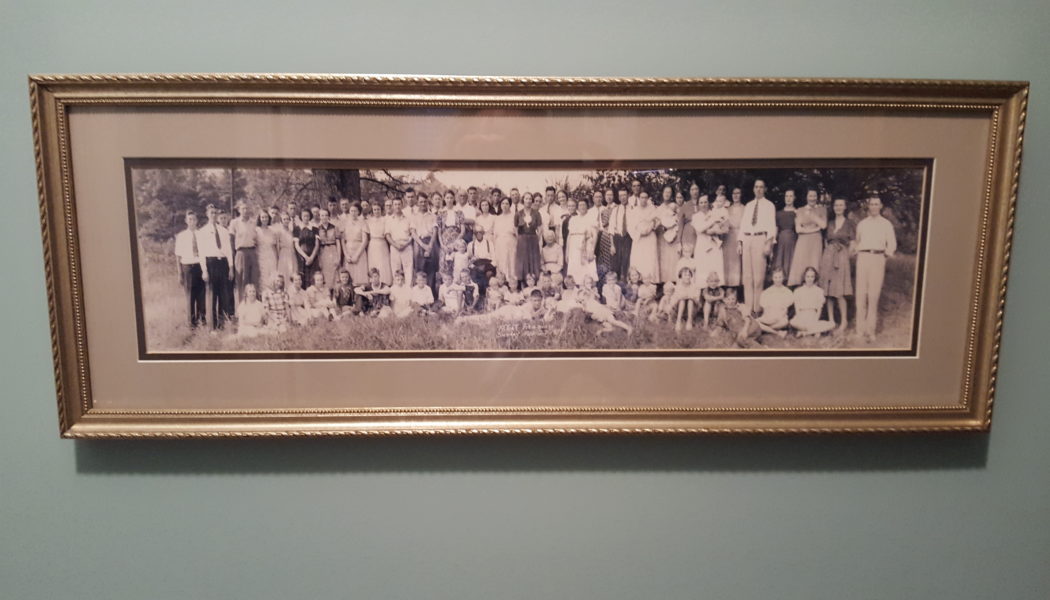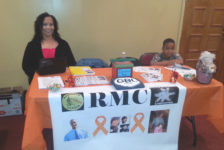My Dad was always a hard worker. He kept a huge garden, a big yard, and lots of projects going, in addition to his job. In 2001, he began to complain about vague symptoms. He got winded when he climbed the big oak with a chain saw to trim out dead limbs, and he got tired if he tried to mow the entire acre with a push mower in a single afternoon. We thought it was just part of being 83.
Another reason we gave the complaints little notice was that Dad had 20 siblings and most lived well into their 80s in good health. Dad had a melanoma removed in 1944 when he was in the army, but other than a large scar and a story to tell, he had no further problems or serious health issues.
The family was dumbfounded then when we learned Dad had a huge kidney cancer tumor extending up the vena cava almost to his heart. No wonder he was short of breath! He underwent surgery but died just 2 months later. I never considered the possibility that I or other family members were at risk for kidney cancer, since no one mentioned the possibility of genetic kidney cancer.
In 2007, I was diagnosed with kidney cancer, already widely metastatic to lungs and bone. When I learned that the National Institute of Health (NIH) had a familial kidney cancer study, I enrolled in the hope that other members of my family could benefit from screening and early detection.
We met with the famous Dr. Marston Linehan, the father of research on the genes and pathways that cause kidney cancer. Through this study, I learned that I tested negative for all known kidney cancer genes, but the possibility that one of the unknown genes contributed was very strong, since in addition to my father’s history, I had two separate primary tumors in my left kidney at the time of diagnosis, a sign of possible genetic cancer.
Like most kidney cancer patients, my father’s diagnosis never triggered a conversation that my risk might be higher. And that is true for most patients today. They aren’t advised that their siblings and children are at higher risk. Known kidney cancer genes (like VHL) are associated with only about 2% of kidney cancers and have a very high risk of cancer. However, in addition to the known kidney cancer genes, there are probably many unknown “weak” genes that may contribute to the development of kidney cancer. Nearly 60% of renal cell carcinoma (RCC) patients in a study in Iceland had a first or second degree relative who also had kidney cancer.
Several years after my visit to NIH, I learned that the family kidney cancer and melanoma history were broader than I knew. I learned that Annie, one of Dad’s sisters, had three children and some significant cancer history. While Annie never had cancer, one of her children was diagnosed around 2010 with RCC in her early 60s and melanoma a few years later. Another child has had multiple melanomas. Since I heard that story, I have confidently referred to my own cancer as having some unknown gene and have continued looking for opportunities to find that unknown gene.
In July 2016, I had a new primary cancer on my remaining kidney. Johns Hopkins arranged to have a tumor sample taken at the time of the cryoablation and to have a complete genomic analysis of both the tumor and my saliva analyzed and compared. All of that data is still in the hands of researchers with the hope that someday, hopefully in my lifetime, researchers will find one more kidney cancer gene—the unknown gene that has affected four people in my family
If you have kidney cancer, I encourage you to research your family history, write it down and share it. If you were young at the time of diagnosis or had multiple kidney cancers, then the chance that a gene contributed to the cancer is higher. Take the time to learn more.









